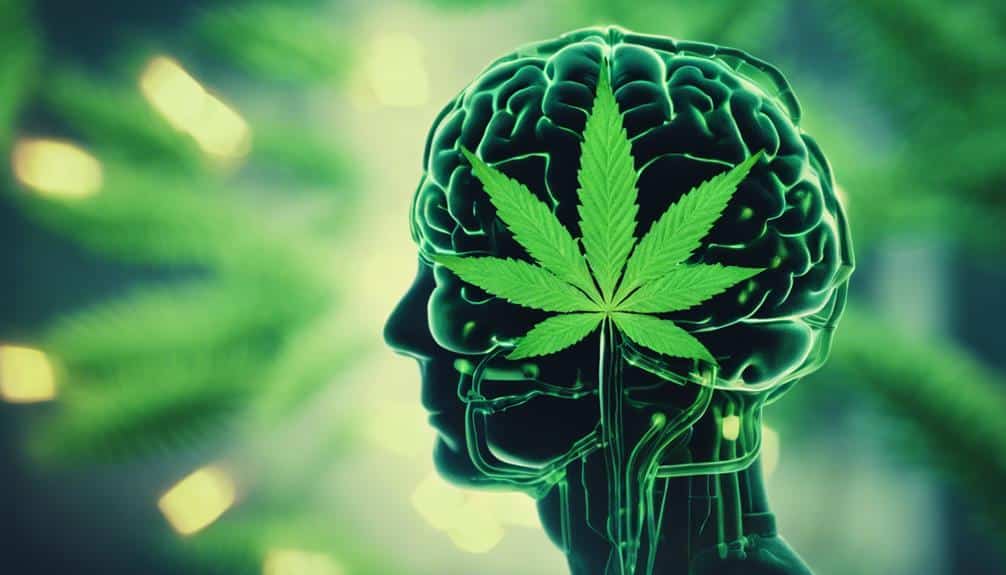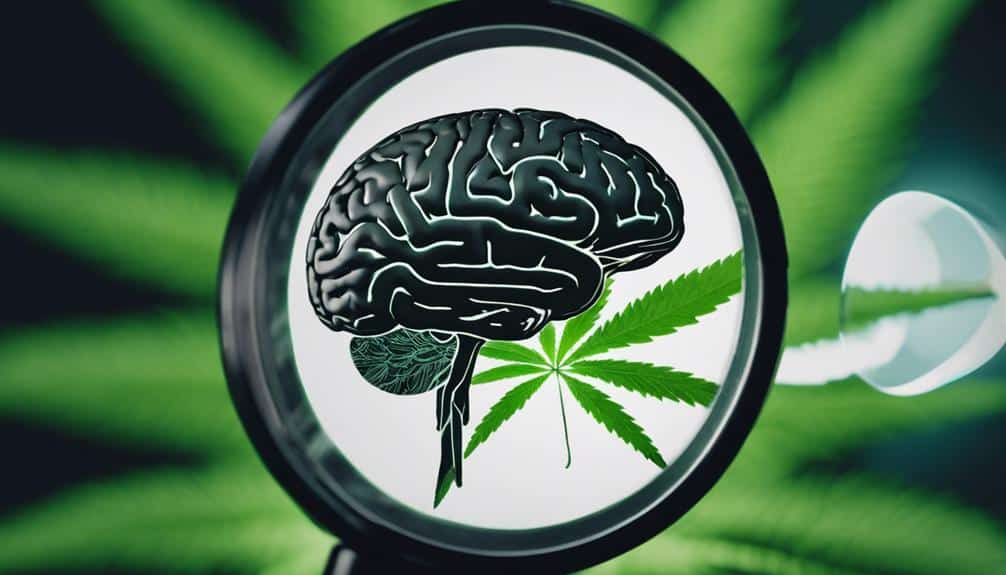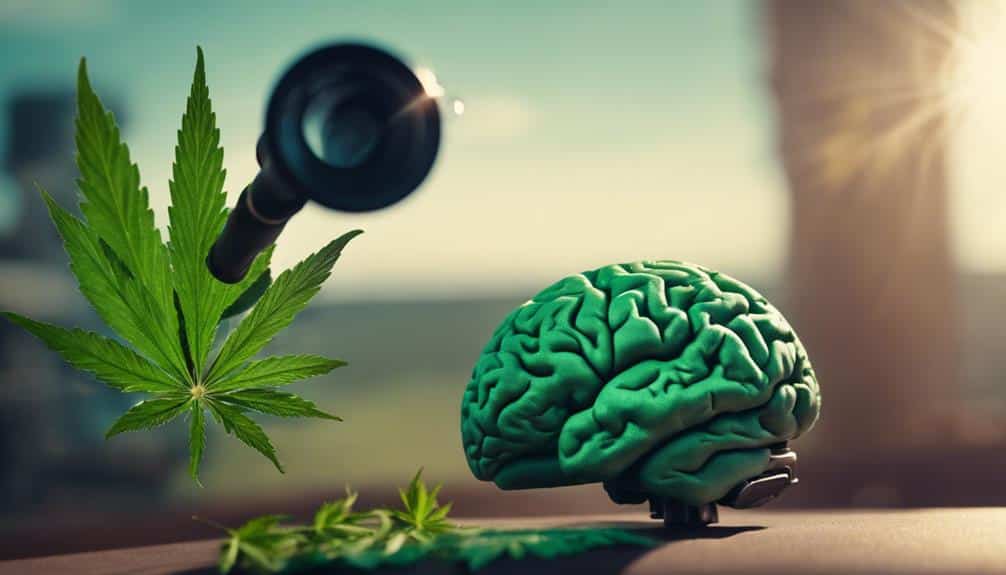Consider the intricate relationship between cannabis and mental health conditions. Emerging evidence suggests potential therapeutic benefits of cannabis for certain mental health disorders, but it’s not as straightforward as it seems.
As you explore this new frontier in treatment, remember that the research is still in its early stages. Furthermore, the scope of its benefits and risks remains unclear.
You might wonder what this could mean for the future of mental health treatment. Well, that’s a question worth delving into further.
Understanding Mental Health Disorders

To fully comprehend the connection between cannabis and mental health, it’s necessary to understand what mental health disorders are, how they manifest, and their underlying causes. Mental health disorders range from depression and anxiety to more severe conditions like schizophrenia. They’re often caused by a complex interplay of genetic, biological, environmental, and psychological factors. These disorders can significantly impair one’s ability to function in daily life by affecting thoughts, feelings, and behaviors.
Let’s discuss the stigma surrounding these disorders—it’s real and pervasive. This stigma often leads to discrimination and isolation which only worsens the struggle for those affected. This is where mental health advocacy comes into play—aiming to change public attitudes and policies while promoting understanding, empathy, and inclusivity.
Understanding these disorders—and their societal challenges—is crucial when discussing potential treatments like cannabis. It provides a broader context that helps make informed decisions about how best to serve those living with mental health issues. So, let’s delve deeper into this topic.
Cannabis: A Brief History
Looking at the history of cannabis, its use extends back thousands of years, with evidence of medicinal applications dating as far back as 2737 BCE. Ancient civilizations recognized its therapeutic potential, and it’s fascinating to see how our understanding and use of cannabis have evolved over time.
To provide a clearer picture, consider these historical highlights:
- The Ancient Chinese Emperor Shen-Nung reportedly used cannabis for medicinal purposes—one of its earliest known applications.
- In Medieval times, Islamic societies utilized cannabis for its analgesic and anti-inflammatory properties.
- The 20th century saw significant shifts in Cannabis Legislation with increased restrictions and prohibitions.
Historically, society has both revered and vilified cannabis—reflecting societal attitudes and governmental policies. However, it’s the ancient uses of cannabis that highlight its potential as a medicinal plant. This historical perspective could inform future explorations—particularly in the realm of mental health.
As we continue to learn more about cannabis, its past could help shape its future—potentially paving the way for more comprehensive, effective, and personalized treatment options for those in need.
Current Research on Cannabis and Mental Health

Moving from historical understanding to recent research on cannabis, let’s explore its potential role in mental health treatment. Contemporary studies have focused on cannabinoid mechanisms and their potential therapeutic implications—leading to intriguing findings that could transform mental health care.
Researchers have found that the psychoactive compound in cannabis, THC, interacts with the brain’s cannabinoid receptors. This interaction triggers a release of neurotransmitters that can influence mood, perception, and cognition—potentially providing relief from mental health symptoms.
Dosage implications are another critical area of investigation. While some research suggests high doses of cannabis may worsen certain mental health conditions, lower controlled doses could have beneficial effects—it’s a delicate balance.
It’s important to understand that research is ongoing. The current findings are promising but preliminary. Further rigorous controlled studies are necessary to fully understand and unlock the potential of cannabis in mental health treatment. As we venture into this new frontier, your role in promoting responsible evidence-based practice is vital.
Potential Therapeutic Benefits of Cannabis
Now let’s examine the potential therapeutic benefits that cannabis may offer for various mental health conditions.
The use of cannabis for mental health treatment is a rapidly evolving field. However, it’s essential to understand its potential benefits:
- Cannabis Bioavailability: Properly metabolized cannabis compounds can interact with the body’s endocannabinoid system—potentially regulating mood and alleviating symptoms of disorders like anxiety and depression.
- Strain Selection: Different strains of cannabis have varying compositions of cannabinoids and terpenes. Selecting the right strain could be crucial for maximizing therapeutic benefits while minimizing undesirable side effects.
- Symptom Management: Cannabis may help manage treatment-resistant symptoms associated with various disorders—including PTSD and bipolar disorder.
Challenges and Future Perspectives

While exploring the potential of cannabis in mental health treatment, it’s crucial to consider both the challenges and future perspectives in this burgeoning field. Stigma reduction is a significant challenge—despite growing evidence of cannabis’s therapeutic benefits, societal prejudices persist. These biases can deter individuals from seeking treatment and create barriers to research.
Policy implications are also considerable—with varying cannabis laws, it’s challenging to standardize treatment and conduct comprehensive multi-site studies. Issues such as dosage control and quality assurance pose additional challenges.
Moving forward, it’s vital to focus on evidence-based education to mitigate stigma. Encourage open dialogues about cannabis and mental health while emphasizing the importance of personal choice in treatment options.
In terms of policy, advocate for legislation that supports research and standardizes treatment protocols. Promote regulatory measures to ensure quality and safety.
Conclusion
You’ve delved into the world of cannabis and mental health—discovering its potential therapeutic benefits. Yet with only 6% of current studies investigating its medicinal properties, there’s much more to uncover. As research unfolds, it’s essential to weigh potential benefits against challenges—keeping a keen eye on this evolving frontier that might revolutionize mental health treatment.
We invite you to explore this fascinating topic further with us at Fells Point Cannabis Docs of Maryland. We’re here to guide you through the complexities of cannabis and mental health—providing up-to-date insights and answering your questions. Feel free to visit or give us a call. We’re eager to share our knowledge and assist you in exploring this new frontier in mental health treatment. We look forward to hearing from you soon!
